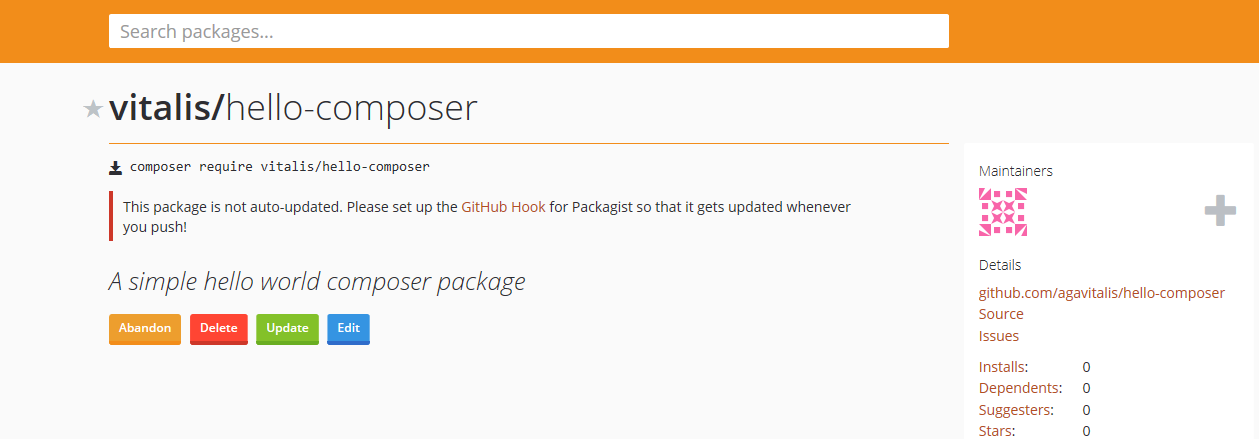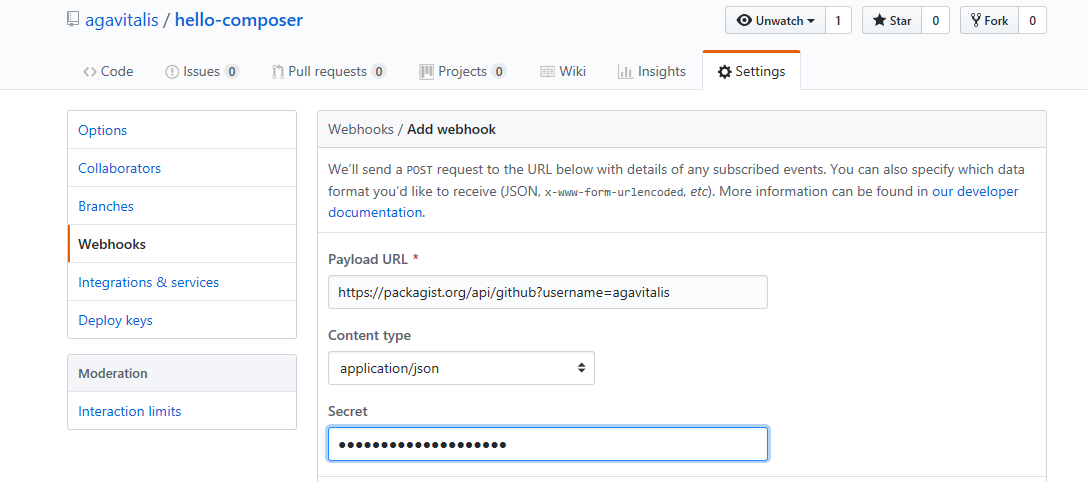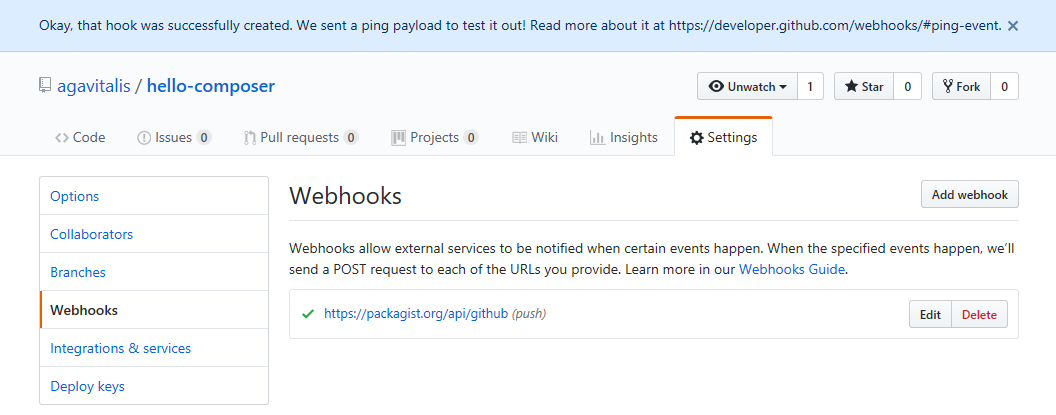How To Set Github Service Hook For Packages
How to automobile-update composer packages with webhooks
Introduction
In the previous tutorial, created, published and used our own package, we saw that by default, packages don't auto-update. This implies that whenever we update our repository where these packages are hosted, nosotros need to manually login to Packagist and update this package manually by clicking the update push button in our dashboard. This feel could be very tiresome, and we wouldn't want to practice that. Thus, the need to auto-update our packages on Packagist each time our packet repository changes.
In this tutorial, we will make that bundle we created in the last tutorial to motorcar-update, wherever there is a change in our git repository.

To achieve this, nosotros volition make apply of Webhook feature in GitHub, whose functionality could be summarized every bit that of an HTTP callback.
The concept of webhook could be hands understood, it is more of a http phone call back, an HTTP Post that gets fired whenever something happens by sending a elementary event notification.
In our case, this HTTP POST will get fired automatically by GitHub anytime at that place is push to our GitHub repository.
#Activating Webhook on GitHub
To activate this feature on our package, we will follow the steps beneath:
- We will navigate to GitHub, and open up the repository that has our published package
- On this folio we will click on "Settings" at the card bar.
- And so from the nav bar on the left, Select the choice Webhook.

When the Webhook tab opens, we volition have some couple of fields to fill, which includes: Payload URL, Content Type and Secret.
#Payload: This is a unique URL, that is specific to your bundle on Packagist.
#Content type: This specifies how we want GitHub to ship our updated packages to Packagist.
#Undercover: This is a unique key generate by Packagist, to ensure that any data its receiving is fully authorized.
These three options could be gotten from our Packagist dashboard here.

After filling in these fields, the above screenshot shows that GitHub has been successfully been integrated into our package on Packagist and volition be automatically update each time our GitHub repository is updated.
Yahh! finally we take successfully fabricated our package to be auto-updating. Don't forget to like and share and comment on the annotate section. Follow u.s.a. on twitter for more updates.
Previous: Create, publish and use your starting time composer package
Next: Making libraries/packages installable using composer
PHP: Tips of the Twenty-four hours
printf vs sprint
printf: printf will output a formatted string using placeholders.
sprint: sprintf will return the formatted string
Example:
<?php $name = 'Edward'; // The '%s' tells PHP to look a string // ? '%due south' is replaced past ? printf("Hello %s, How's it going?", $name); echo "\north"; // Instead of outputting information technology directly, place it into a variable ($greeting) $greeting = sprintf("Hello %south, How's it going?", $proper noun); echo "\north"; echo $greeting; ?> Output:
Hello Edward, How's it going? Hello Edward, How's it going?
It is too possible to format a number with these two functions. This tin can be used to format a decimal value used to correspond money and so that it e'er has 2 decimal digits.
<?php $money = 35.5; printf('%01.2f', $money); ?> Output:
35.50
The two functions vprintf and vsprintf operate as printf and sprintf, only have a format string and an array of values, instead of individual variables.
How To Set Github Service Hook For Packages,
Source: https://www.w3resource.com/php/composer/how-to-auto-update-composer-packages-with-webhooks.php
Posted by: woffordmazincusithe1969.blogspot.com


0 Response to "How To Set Github Service Hook For Packages"
Post a Comment